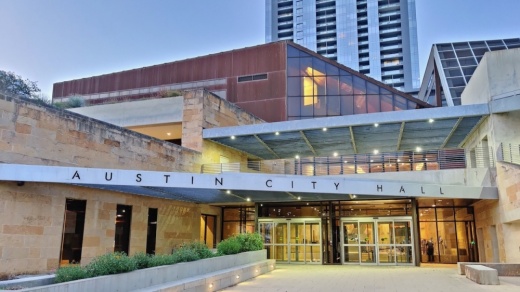The pilot program, if approved by City Council on April 21, would hand out monthly checks to 85 families over the course of one year. The program would represent the city's first foray into sending unrestricted financial support directly to residents, and officials said they hope it can relieve some day-to-day burdens for community members selected to participate.
“One thing we saw during the pandemic was the power of giving people that were in need some resources and then saying, ‘You know better than anybody else does what it is that your family needs,'" Mayor Steve Adler said during an April 18 discussion of the pilot. "The guaranteed basic income program is based on the premise that, if you took those dollars that you’re putting towards social services, where if you took dollars and gave them to somebody that was just on the edge, and you could prevent them from falling over, that you could actually improve their lives."
The $1.18 million program was funded through an Adler amendment to the city's budget and would be managed by nonprofit UpTogether. Adler and District 2 Council Member Vanessa Fuentes both said although residents would be left to decide the best use of their dollars, a main goal of the program is addressing housing insecurity as local rents and the cost of living increase.
“We know that here in Austin we’re in a housing crisis," Fuentes said. "It really is customizable to the community and the unique needs of our community."
Adler, the item's sponsor on council, is a backer of the overall concept as a member of the national Mayors for a Guaranteed Income network. Despite his support, however, he said he was originally skeptical of spending taxpayer dollars on a payment program with no strings attached for its recipients.
With those reservations in mind, Adler said he came around to the idea after reviewing data from similar initiatives elsewhere. According to Adler and Chief Equity Officer Brion Oaks, several other cities' programs have shown that monthly checks often leave participants in a better situation than when they started receiving the money. Oaks said benefits can include improved overall financial stability and savings, higher levels of academic achievement and employment, and freeing up the time and resources to allow families to spend more time together.
“Some positive takeaways from other cities is that the program works. It gets results," Oaks said.
Adler said the lack of spending restrictions also allows families to be more creative or effective than a more tightly managed government program might. Additionally, he said the cash distribution could reduce other city spending on more costly social service work by relieving pressure on some residents in need of that support.
If council signs off on the income distribution plan this week, Oaks said UpTogether could launch the pilot as soon as late May or June. Details such as program eligibility and the final selection of those receiving checks would be worked out this spring.
The 12-month pilot would run under review from Urban Institute researchers and, if successful, could be repeated or expanded in the future.
“Between all of the cities that are innovating here, somebody’s going to find the right way to do this. And I think it’s kind of Austin’s responsibility to be part of that search for how we make something like this best work," Adler said.





